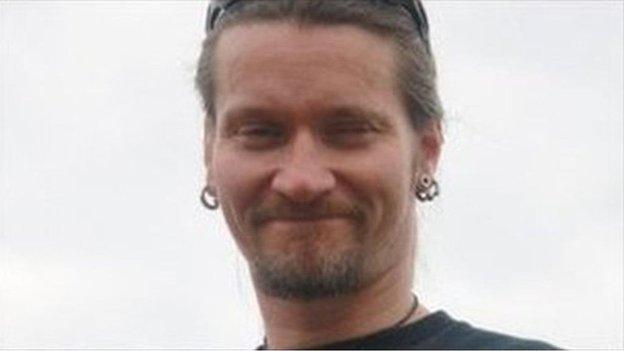Ricky Reel death: Family police spied on feel 'violated'
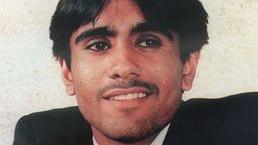
Ricky Reel's family were spied on by the Met Police after his death
- Published
Ricky Reel died in 1997 following a racist attack in Kingston upon Thames. His family have always believed he was murdered.
They accused the police of racism and negligence at the time of his death, and started a campaign called Justice for Ricky Reel.
That led to them being spied on by the Metropolitan Police, with the Reels' ordeal one of many that have been the focus of the Undercover Police Inquiry.
Now in its latest phase, the inquiry has heard from grieving families - most of whom are black and Asian - who gave evidence about how they were spied on.
The undercover officers responsible for this intrusion were from the Special Demonstration Squad (SDS), a covert unit within the Met Police.
They infiltrated the campaigns of a number of families, including the family of murdered black teenager Stephen Lawrence, who had spoken out against their treatment by the force.
Mr Reel's mother Sukhdev Reel said she felt violated by what the police did and "needed answers to get peace".
This week, Mr Reel's family told the inquiry of their "shock and disgust" at learning how they were spied on, saying it had been "re-traumatising".
Met Police documents, handwritten notes and intelligence reports showed how intelligence was gathered on the Reel family by an SDS undercover officer called David Hagen - also known as "HN81".
He infiltrated their campaigning, gathering information about the family, their supporters and their protests.
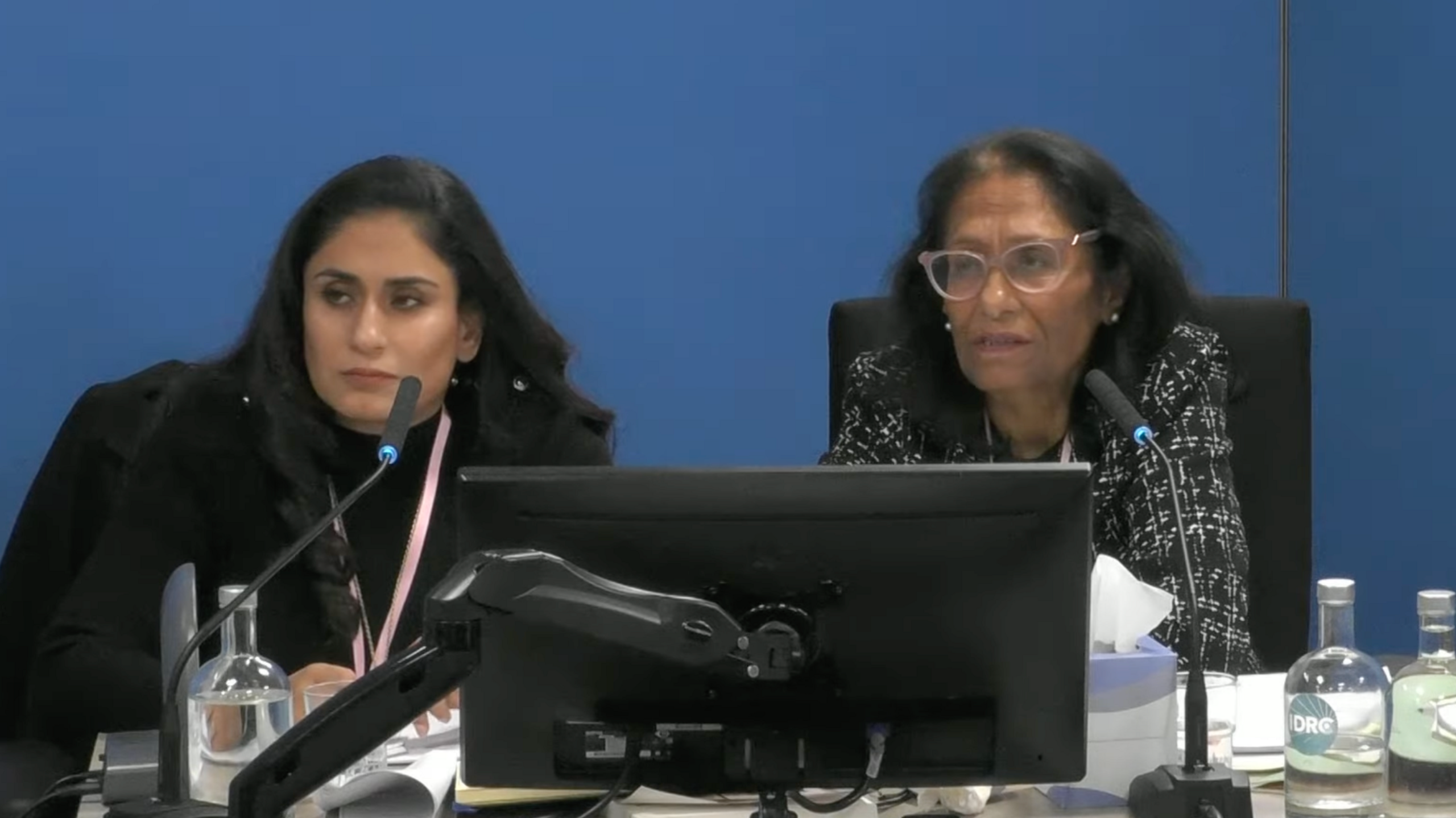
Ricky Reel's sister Tish and mother Sukhdev both gave evidence to the Undercover Policing Inquiry
According to Mr Reel's sister, Tish, theirs was "a peaceful campaign and everything we did was public and lawful.
"There was no need to be covertly monitored."
Who was Ricky Reel?
Lakhvinder Ricky Singh Reel died aged 20 in October 1997.
His body was found in the River Thames, a week after he went missing while on a night out in Kingston upon Thames, south-west London.
On the night he went missing, two white youths had attacked Mr Reel and his friends, a group of young Asian men.
The police maintained Mr Reel's death was a "tragic accident" but the family have always thought he was murdered.
The family told the inquiry they believed overt police racism "polluted and contaminated" the investigation, giving examples including that of the Met's response when they reported Mr Reel missing: "They asked if he was maybe gay and avoiding an arranged marriage."
The family said the police had been unwilling to link the racist attack with Mr Reel's death.
The inquiry also heard how a police officer kept post-mortem photos of the 20-year-old's body, and after he retired from the Met sent them to a newspaper journalist.
During their campaigning, the family were given the address of a person possibly connected to the racist attack.
The inquiry heard how police said they visited this person and then told the Reels: "These are white, educated people, their house is clean, they can't be racist."
In 1999, an inquest into Mr Reel's death recorded an open verdict after the coroner said there was not enough evidence to reach a conclusion.
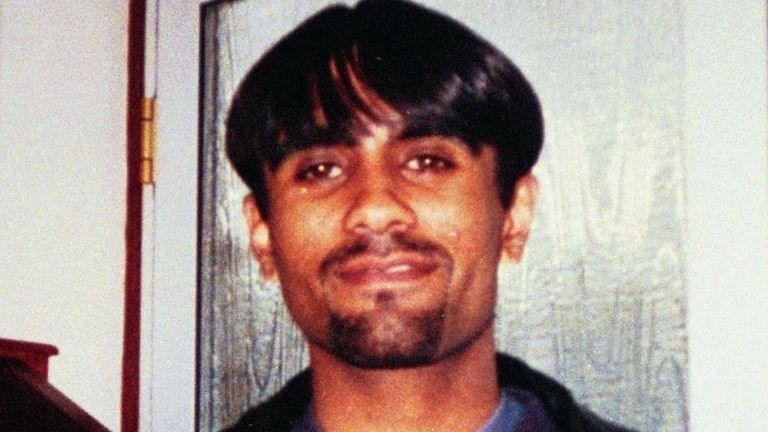
Mr Reel's family have always thought he was murdered
The Met undercover officer HN81 attended campaign meetings, went to memorial events and on one occasion drove Mr Reel's mother back to the family home.
Sukhdev Reel said when she found out who he was, she "felt sick and humiliated".
She added: "He took advantage of my vulnerability. He drove me in an unmarked police car and pretended to be a supporter. Why?"
In one intelligence document shown to the inquiry, it was described how HN81 had "good liaison contact with S Reel" and that the family's campaign had the "potential to cause the police embarrassment on the same scale as Lawrence case".
The undercover officer was said to be "ideally positioned to monitor in the months ahead".
"We were spied on because we raised our voice," Tish Reel said. "At that time we were at our lowest, begging the police to investigate Ricky's death and told they didn't have resources.
"But they diverted resources to spy on us – on multiple occasions."
A Met Police Special Branch document dated September 1998 revealed details of "secret and delicate source material" relating to the family's campaign. It was gathered by the SDS as "a note produced for the information of the Commissioner" and other senior officers.
"This shows information was shared at the highest level in the Met," Tish Reel said. "We were asking to speak to them while they were getting information on us."
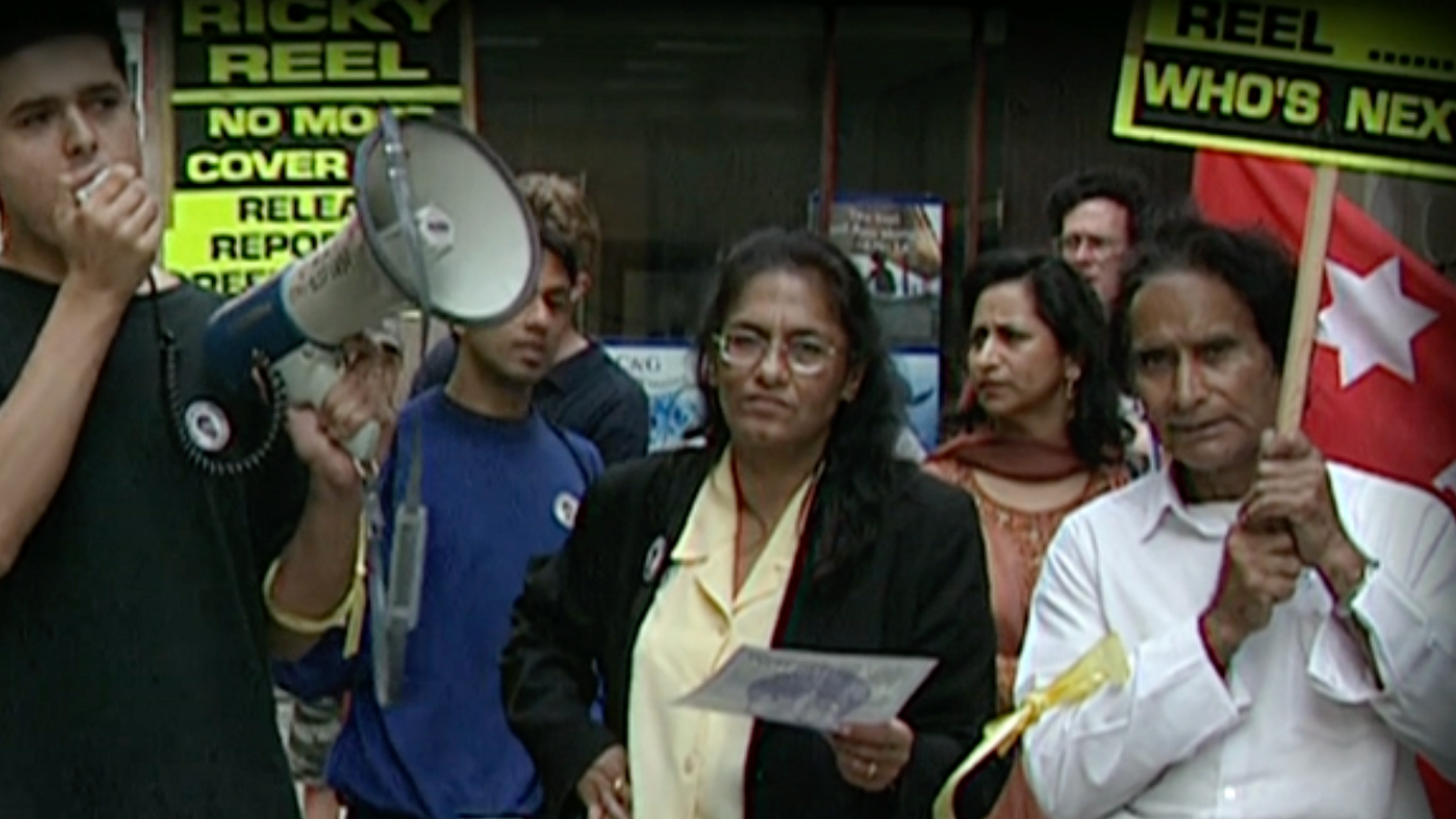
The family set up the Justice for Ricky Reel campaign
Tish Reel said her mother often "wakes up in the night screaming" about how she has "eyes" following her.
"Her grandchildren hear her," Tish said. "The trauma has passed on through the generations."
In her closing remarks, Sukhdev Reel told the chairman that she hoped the inquiry would be a "force for good" and make "bold recommendations".
"The inquiry has a duty to not let us down," she said. "The findings and actions that come out of this inquiry will either begin to mend the trust with the Met and marginalised groups or break it completely."
Tish Reel added: "We are desperate to understand why this happened and to ensure it doesn't happen again – no family deserves this."
When they had finished speaking, Mr Reel's mother and sister were applauded by many in the hearing room at the International Dispute Resolution Centre in central London.
Outside the hearing, Sukhdev Reel said: "This has impacted the whole family. I've been in and out of the hospital; in fact I had to sign my statement to the inquiry while I was still in hospital - this has destroyed my life."
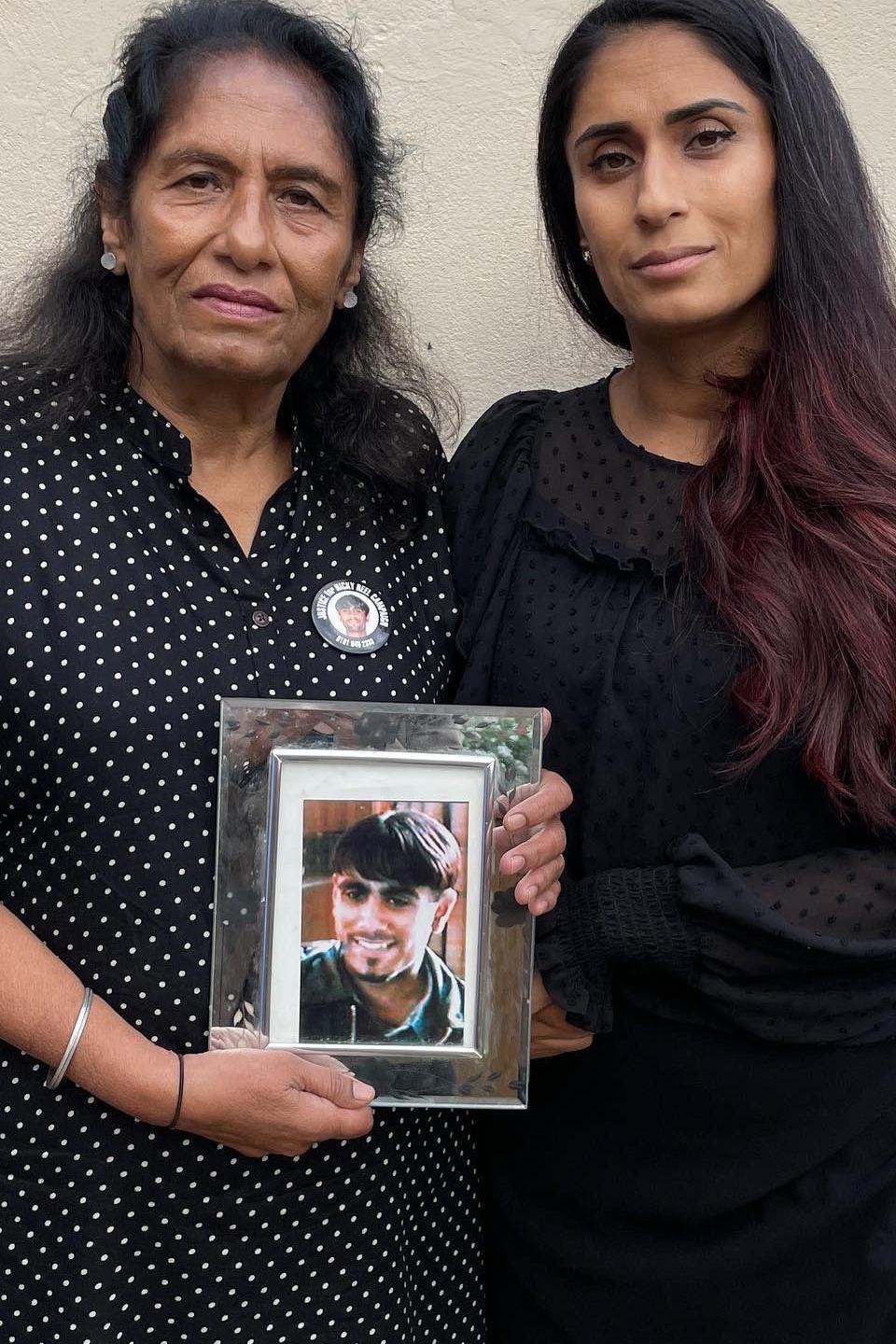
Sukhdev and Tish Reel said the actions of the SDS had affected the whole family
The chairman, retired judge Sir John Mitting, said he was "deeply grateful" to everyone who had taken part in the inquiry.
Looking to Mr Reel's family, he said he "cannot achieve perfection" but added: "I will do my best - that is all that I can promise."
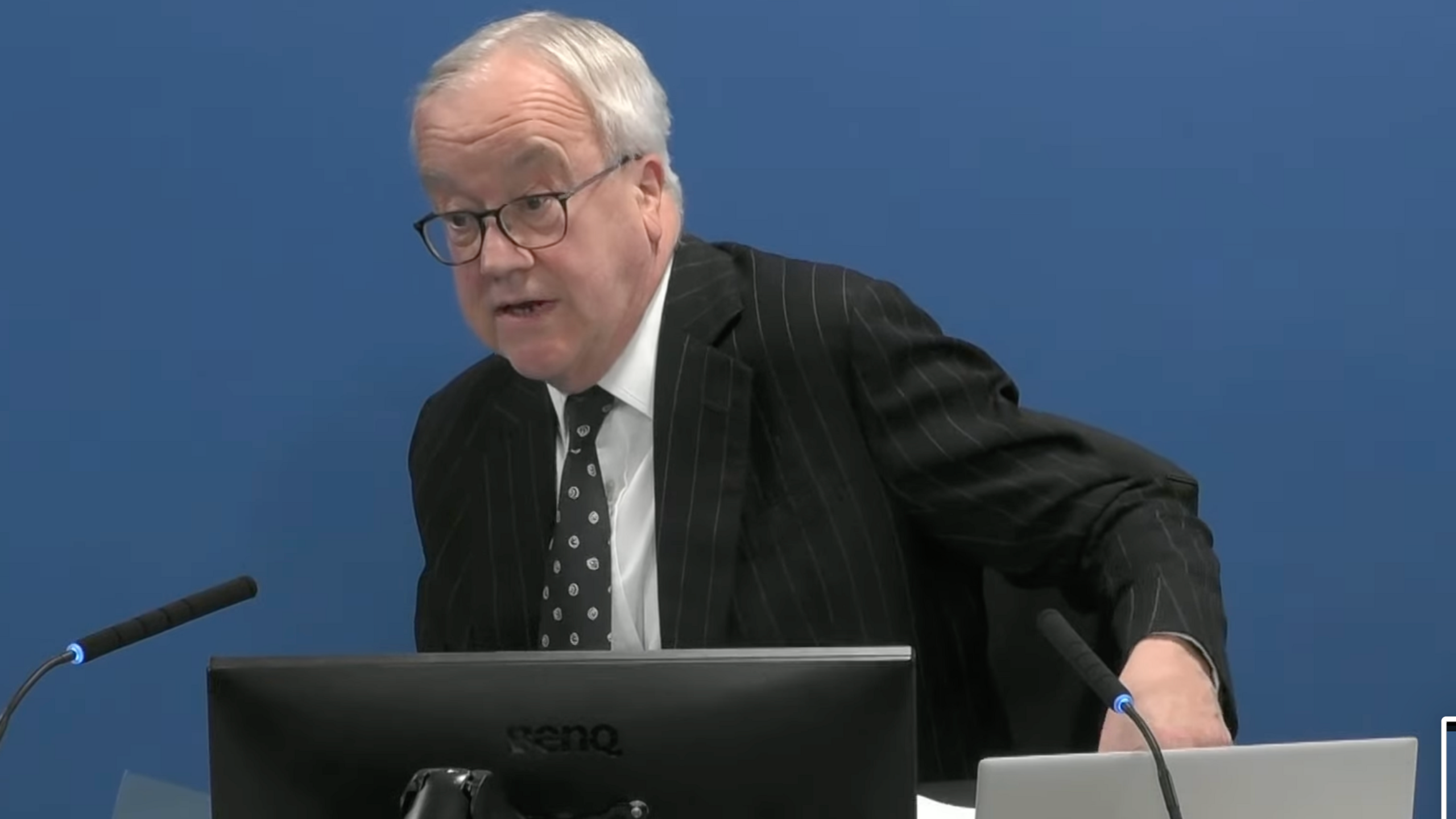
Inquiry chairman Sir John Mitting thanked the families
Suresh Grover from campaigning organisation the Monitoring Group, external was also spied on and recently gave evidence to the inquiry.
He said there was "an alarming link" between some of what has been heard at the inquiry and the current "political policing of protest".
He believes the inquiry "has a role to play to shift structural changes within institutions like the Met".
In a statement, Met Police Deputy Assistant Commissioner Jon Savell said: "The commissioner acknowledges that the reporting on the Ricky Reel family campaign was unnecessary, unjustifiable and wholly indefensible.
"It displayed a collective failure of ethical judgement and the MPS (Metropolitan Police Service) sincerely apologises.
"We are committed to continue learning from the human toll of the SDS."
'Frustrating'
Others have spoken to the inquiry about how the same undercover officer, David Hagen, spied on their justice campaigns, including Baroness Lawrence, the mother of murdered black teenager Stephen Lawrence, and Bernard Renwick, the brother of musician Roger Sylvester who died after being restrained by police officers.
The inquiry has heard the former officer is not able to appear because he is too ill and is suffering from PTSD.
Tish Reel said this was "frustrating" and Sukhdev Reel said she "feels very angry officers have got this luxury of hiding behind a curtain".
"They should be there and give evidence of why they did this - I need answers and until I get answers, I can't get peace."
The Met Police told the BBC: "The commissioner expects all serving and former officers to fully participate in inquiries where possible."
The inquiry continues.
Listen to the best of BBC Radio London on Sounds and follow BBC London on Facebook, external, X, external and Instagram, external. Send your story ideas to hello.bbclondon@bbc.co.uk, external
- Published2 November 2020
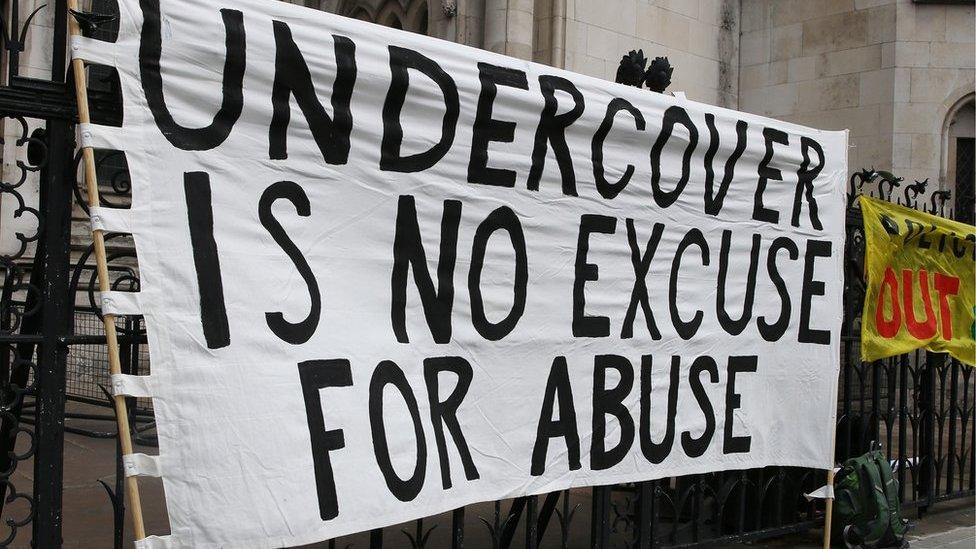
- Published13 October
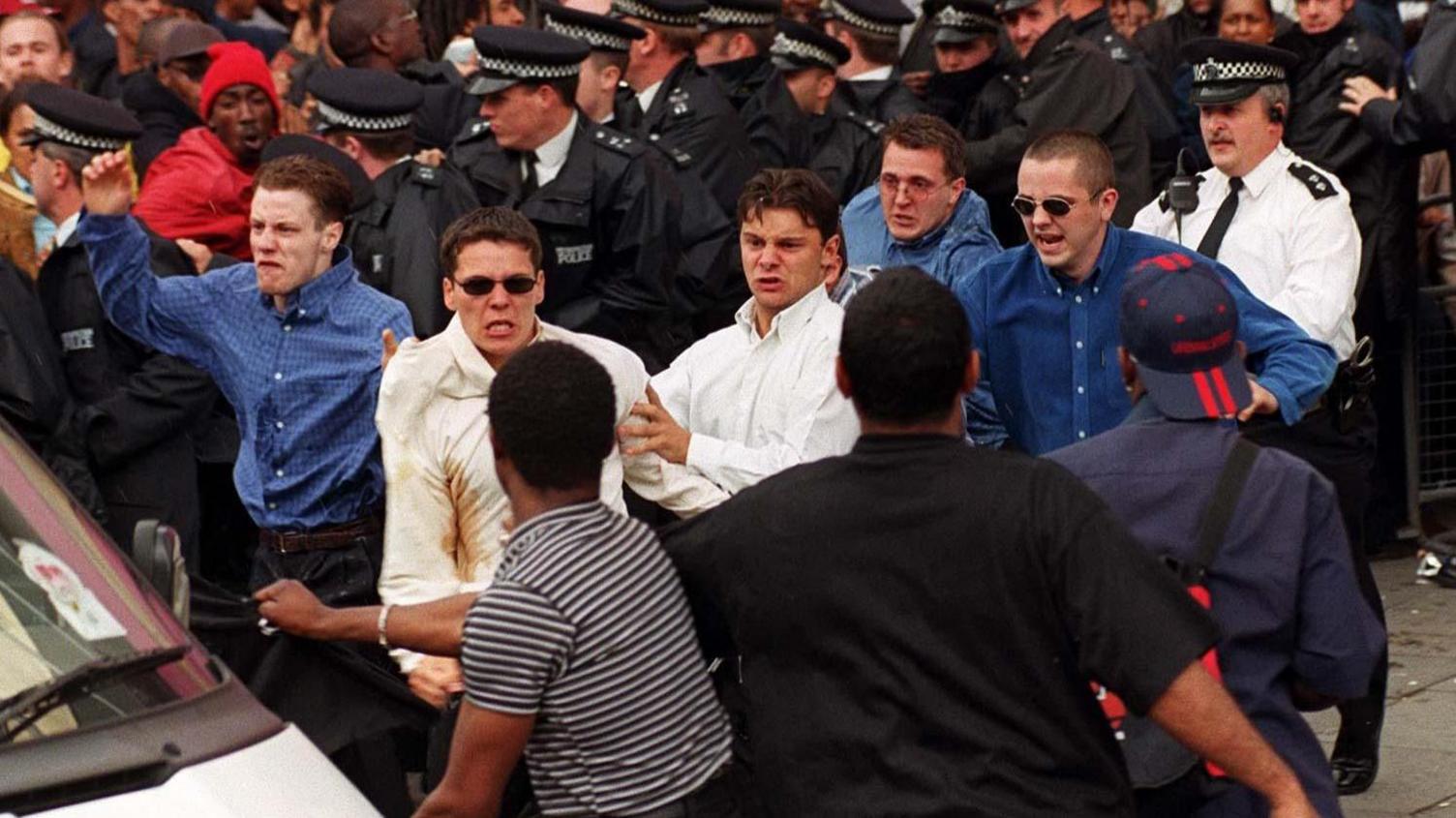
- Published28 July 2015
